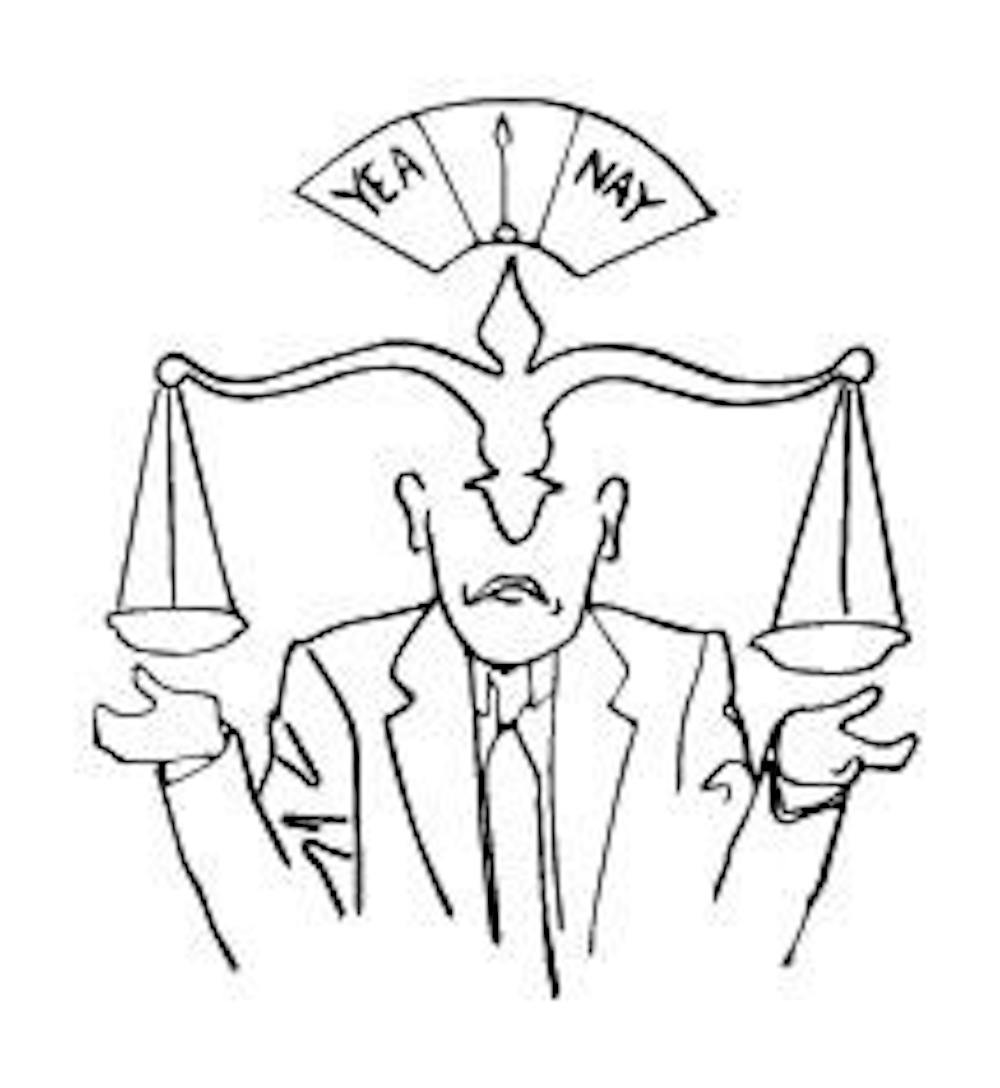Federal Appeals Court Judge Richard Posner claims he made a mistake upholding the constitutionality of Indiana’s voter ID laws.
He claims there wasn’t enough information presented during the trial of the case, but now that he has learned more about the issues, he believes Indiana’s voter ID laws are wrong and unconstitutional.
Indiana’s voter ID laws state you must have a government issued ID that contains a photo, your legal name and an expiration date.
Our issues with this don’t stem from the voter ID laws but from judges and judicial proceedings.
It is ingrained into our minds as Americans to trust the judicial system and its rulings.
Judges are meant to be unbiased, apolitical and steadfast in upholding the Constitution, which holds our nation together.
But this unwavering faith and lack of questioning given to the judicial process has led some courts astray.
Posner, in recognizing his mistake, is a rarity.
His reason for this anomaly is “we did not have enough information. ... We judges and lawyers, we don’t know enough about the subject matters that we regulate, right?
“And that if the lawyers had provided us with a lot of information about the abuse of voter identification laws, this case would have been decided differently.”
We commend Posner for admitting his mistake and being honest about why the decision was wrong.
The idea of judges being wrong, though, is worrisome.
The lack of information is troubling, too.
In court, all the facts are supposed to be presented during the course of the trial.
It’s lawyers’ and judges’ jobs to be the most knowledgeable on the issues at hand and to relate that information back to how it effects the people and the Constitution.
If judges and lawyers can’t get that most vital and basic aspect of information-gathering right, the judicial process loses its importance and its merit.
Whether you agree or disagree with Indiana’s voter ID laws, this case calls inquiry to all other cases that were decided by a panel of judges.
This case could just be the tip of the iceberg.
Getting a case like this wrong puts critical rulings into question such as Obamacare, Shelby County v. Holder or Roe v. Wade.
While court cases have been overturned in the past, many more have set precedents for future cases and laws.
And, unfortunately, Indiana’s mistaken ruling on the constitutionality of voter ID laws has set a precedent for the country, as Texas and North Carolina are currently trying to determine the same thing.
Let’s just hope the judges on those cases are more informed about the issues at hand.
— opinion@idsnews.com
Follow the Opinion Desk on Twitter @ids_opinion.
Rushed judgement

Get stories like this in your inbox
Subscribe




